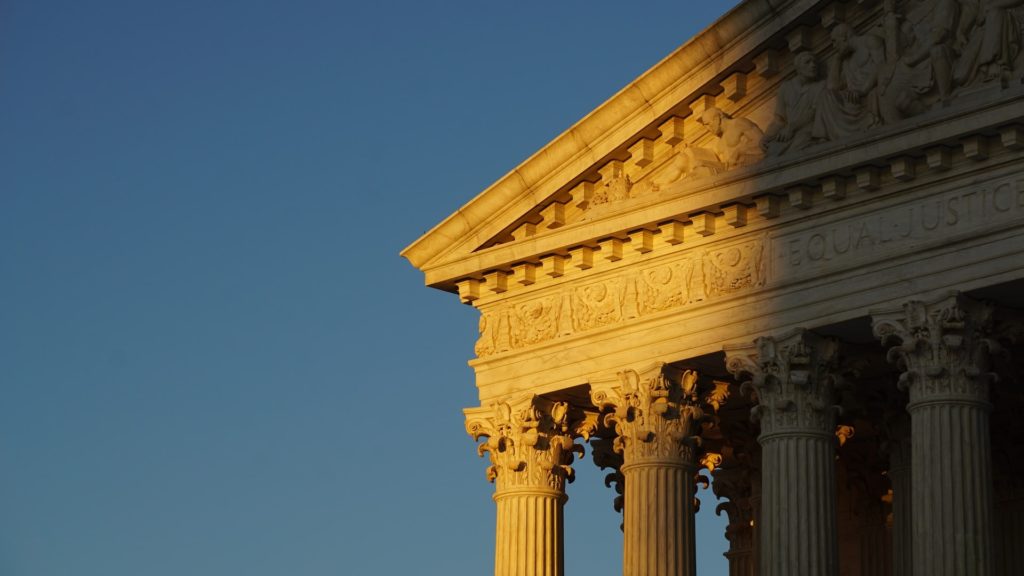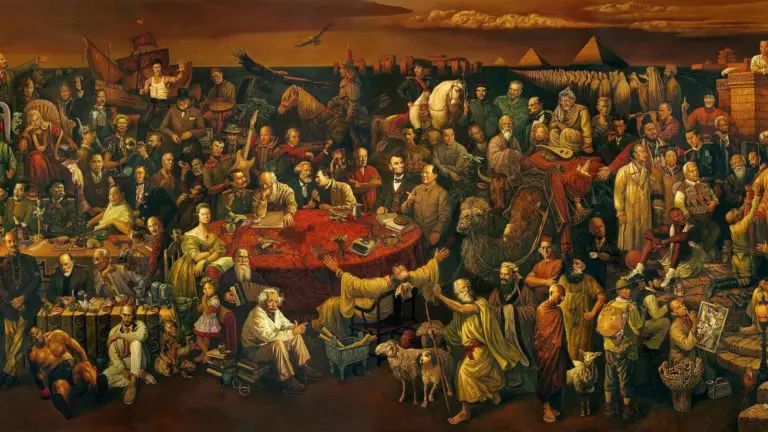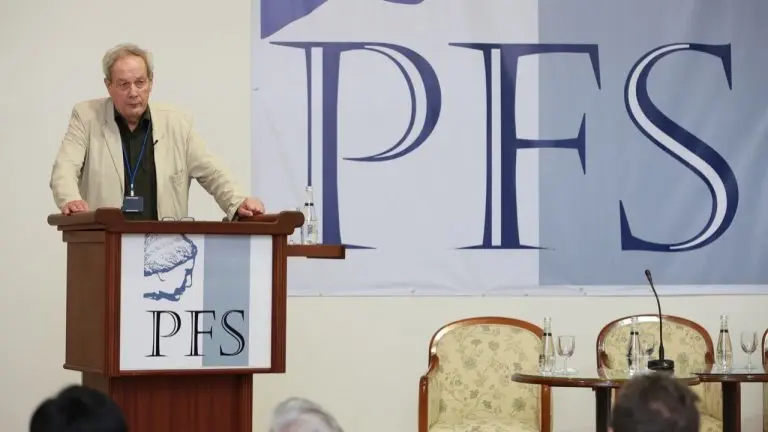Roe v. Wade, the 1973 Supreme Court decision that forced all fifty states to legalize abortion, is dead. Countless babies will survive their time in the womb as a result. Abortion activists around the world are melting down in real time, and across the West, citizens of other nations stare at America with confusion. How could this happen in the 21st century? How is it that the greatest of all democracies has been transfixed by abortion politics for decades? In short, why is America so different?
The answer is simple and unpopular: it is because there is still a battle being waged for the soul of America. On June 24, 2022, a great victory was achieved by those on the side of light, proving once again that the forces of the sexual revolution have not yet completely won. In the United States, there are still tens of millions of praying Christians desperately clinging to hope that America, with her Christian founding, high ideals, and faith-wracked history, can be saved from the progressives seeking to irreversibly transform her.
Throughout the rest of the quietly dying West, a state of post-Christianity has been an indisputable fact for several generations. While that may soon come to America, there are still millions who are not giving up, and wars are not lost until one side surrenders. That is why every election seems like an existential struggle—because again, it is a battle for America’s soul.
Elsewhere in the West, one primarily hears the “melancholy, long withdrawing roar” of the Sea of Faith referred to by Matthew Arnold in his magnificent 1851 poem Dover Beach. Who would say, for example, that there is a battle going on for the soul of Canada, or the Netherlands, or England? In Canada, socially conservative parliamentarians attempt to blunt the damage of euthanasia legislation and the LGBT agenda, but only a distinguished few dare to say what they truly believe into microphones.
In the Netherlands, tiny Christian political parties do the same. The once-great Calvinist republic and father of religious tolerance now cannot handle the news that Dutch pastors oppose same-sex marriage without political shockwaves. In the United Kingdom, a cradle of so much Christian culture, it was a Tory prime minister who redefined marriage, the Iron Lady Margaret Thatcher who backed abortion rights, and the populist Boris Johnson who condemned Roe v. Wade as a step backwards—especially for men like him, as he allegedly paid for one of his mistresses to have an abortion.
One of the reasons that so many Europeans and Canadians are often bewildered and—let’s face it, turned off—by the patriotic rhetoric of American Christians is because they simply do not understand it. The cultural militancy of American Christianity is genuinely foreign to other Westerners—their Christian heritage was lost long before they were born. This confusion can lead to snobbery towards American Christians. This snobbery is often simply surrender dressed up as elitism or a pretence of holding the moral high ground.They now live in a post-Christian Europe and have long lost many of the cultural battles, but they sneer at those who still fight for the way they fight (long-standing anti-Americanism also plays a role).
This attitude frustrates many of my European friends in the pro-life and family movement who see things far more clearly; many European Christians openly preferred Hillary Clinton to Donald Trump. I debated one European relative of mine on this, and he simply could not understand the weight that abortion and religious freedom holds for Americans. Hillary Clinton, because she is courteous, seemed much more acceptable than Trump.
The thrust and parry of America’s decades-long culture wars makes many Christians believe that there might not only be a chance for victory, but also that its Christian founding is fundamentally worth fighting for. This hope—as mad and unrealistic as it might seem to many—fuels millions. This is strange to those non-Americans who have long given up the idea that their nations could ever return to their respective heritages. Many look at the United States with a vague and undeserved arrogance about brash populist carnival barkers and prefer polite, feticidal socialist politicians who dress up their decadence in polite manners.
While America was the epicentre of the sexual revolution, it also produced a turbulent backlash on a scale that occurred almost nowhere else. The American pro-life movement is one of the most powerful in the world (with the exceptions of some movements in South and Latin America, and the Irish movement prior to 2018). Titans of traditional values such as Phyllis Schlafly, the brilliant mother who marshalled millions of housewives and defeated the Equal Rights Amendment, are certainly not a uniquely American phenomenon, but social conservatives have achieved more success in America than almost anywhere else.
I do not want to be misunderstood here—I am in no way insinuating that the sexual revolution provoked no backlash in other nations. I’ve been privileged to work with pro-life activists from around the world, and wherever the culture of death has reared its bloody head, faithful men and women have banded together to push back and save lives. The story of those unsung heroes across the West deserves to be told more fully one day (I have attempted to make my own small contributions in this regard, most recently in my book Patriots: The Untold Story of Ireland’s Pro-Life Movement). But in America, there are still millions who believe that the culture war itself can be won—and that is what makes America so different.
I’m not going to opine here on whether that belief is well-founded or wildly optimistic. Wild optimism has always been an American trait, and if it infuses people with the will to fight, then it is a good thing. The American experiment may yet be destroyed by the sexual revolution, but there are millions of praying patriots who have been bare-knuckle brawling as if their nation depends on it—because they know that it does. They know what they are fighting for, and the stakes are the United States of America.
America’s position as the global superpower means that these fights have an international impact, and that is a key reason for the hysteria and panic we see unfolding in the progressive Left. The death of Roe was a profound psychological defeat as well as a political one. Never before has a Western democracy that declared abortion to be a constitutional right reversed course in such a fashion. Something that was chosen has been unchosen. Something that was done has been undone. In the very nation that gave birth to the sexual revolution, the highest court in the land rolled back its bloody sacrament. Not everywhere, not yet—but in many places. This is a truly historic moment.
After fifty years of legalized slaughter, a majority of Supreme Court justices repudiated the invisible carnage that our post-sexual revolution societies have, in many ways, come to rely on to sustain our carnality. Has the sexual revolution ever been struck such a great blow, anywhere? Has it ever happened that the judicial elites of a society drunk on the blood of more than sixty million innocents suddenly said thus far and no further? It has not. And just as those who prize feticide as a fundamental birthright descended into panic, beleaguered pro-life activists worldwide saw the news and dared to hope. If Roe could fall, what else might be possible?
Liberal columnist Damon Linker acknowledged as much in a recent newsletter. The fact that Roe was overturned, he noted, “isn’t normal.” In fact, it is stunning because a nation reversing course after nearly a half century “runs smack up against what might be called progressivism’s philosophy of moral history, which holds that the number and scope of rights only expands over time, as the liberty of more and more people and groups came to be protected by the liberal state.” Pro-lifers, on the other hand, have been insisting that abortion is a human-rights violation rather than a human right for decades.
In other words, progressives have been rudely denuded of their unshakeable sense of inevitability. At pro-life marches and protests, I often see middle-aged or elderly pro-choice activists crankily hoisting signs that read: “I can’t believe I still have to protest this shit.” I believe them—and thus Roe’s fall is truly earth-shattering. The unthinkable has happened, and for many abortion activists it feels like the end of their world.
An Ethiopian abortion activist called it a “catastrophe” that could “influence policymakers” and noted that “whatever we have gained could be lost.” Eugenia López Uribe of the International Planned Parenthood Federation warned that nations in Central and South America could follow suit: “They can see that if they change laws and they go against women’s rights, they can do it without any consequences.” As one international abortion campaigner put it: “A lot of the countries in which we work that have less restrictive abortion laws are probably a little bit ahead of where the country is socially. So they are very, very fragile. So it’s not going to take much to undermine them, overturn them.”
To that we give a loud and hearty Amen! As Finnish MP Päivi Räsänen put it: “The decision of the U.S. Supreme Court is good news for the defenders of children’s rights! This decision will have global implications for the debate on abortion. The decision gives hope to the rest of the world that laws can also be changed to protect a child’s life.” The highest court of the world’s greatest superpower has announced that abortion is not a constitutional right and struck fear into the heart of abortion activists everywhere. Others dare to hope. Maybe, just maybe, the sexual revolution can be rolled back. Maybe the arc of the moral universe will bend towards justice. Maybe it’s true what they say about America. Maybe anything really is possible.






